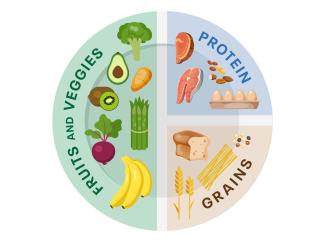
Potassium is an essential mineral and electrolyte that plays a vital role in various physiological functions within the human body. While many of its benefits are well-known, there are some unexpected and surprising benefits of potassium that you might not be aware of:
- Blood Pressure Regulation: It's widely known that potassium helps lower blood pressure, but the extent of its benefits can be surprising. A potassium-rich diet can help counteract the effects of excessive sodium intake, reducing the risk of hypertension and related cardiovascular issues.
- Muscle Function: Potassium is essential for proper muscle function, including the contraction and relaxation of muscles. This is especially crucial for maintaining a healthy heart and preventing conditions like arrhythmias.
- Nervous System Health: Potassium plays a crucial role in maintaining the electrical conductivity of nerve cells. Adequate potassium levels can help prevent nerve disorders and improve overall neurological function.
- Bone Health: While calcium is often associated with bone health, potassium also contributes to bone density. A diet rich in potassium may help prevent osteoporosis and maintain strong bones.
- Kidney Stone Prevention: Surprisingly, potassium can help reduce the risk of kidney stone formation. It helps the body excrete excess calcium through urine, which can prevent calcium oxalate stone formation in the kidneys.
- Enhanced Cognitive Function: Adequate potassium levels can support cognitive function and help maintain mental clarity. It contributes to improved brain health by ensuring optimal neural transmission.
- Alleviation of Muscle Cramps: Potassium deficiency can lead to muscle cramps and spasms. Adequate potassium intake can help prevent or alleviate these painful episodes.
- Improved Digestive Health: Potassium-rich foods can promote healthy digestion by supporting muscle contractions in the digestive tract. This can help prevent constipation and other gastrointestinal issues.
- Enhanced Exercise Performance: Potassium helps maintain proper fluid balance and muscle function, making it important for athletes and active individuals. Ensuring sufficient potassium levels can improve endurance and reduce the risk of muscle fatigue.
- Reduced Stress and Anxiety: Some studies suggest that potassium may help reduce stress and anxiety by supporting healthy brain function and neurotransmitter balance.
It's important to note that while potassium offers various benefits, an excessive intake can have adverse effects on health, including heart and kidney problems. Maintaining a well-balanced diet and consulting with a healthcare professional can help you achieve the right potassium levels for your individual needs.






